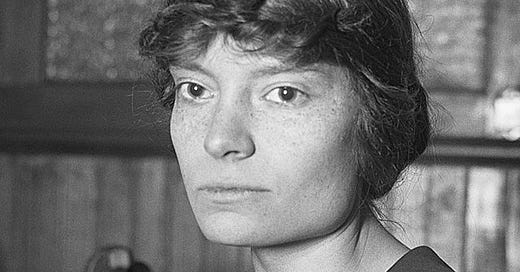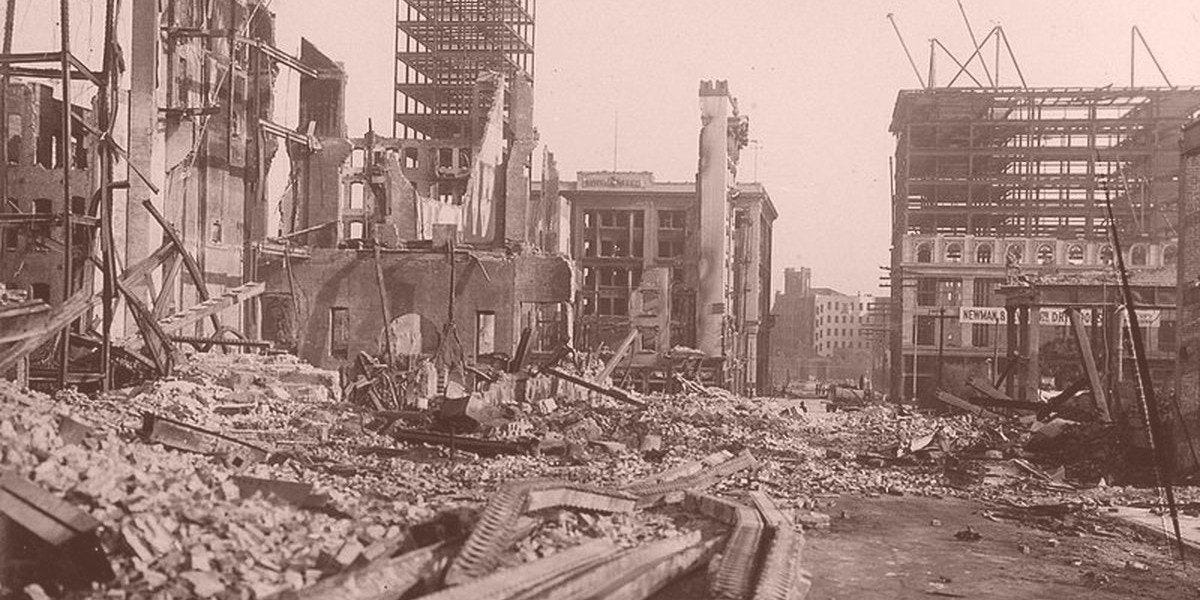I really only love God as much as I love the person I love the least.
Advent Day 11: Dorothy Day (1897-1980)
Francis of Assissi once said, “Preach the gospel at all times; when necessary, use words.” Your own life, built on a foundation of love, is the greatest proclamation of the good news Jesus shared and modeled. This is true of everyone whether you are President of the United States or President of the Harry Styles fan club, passing legislation in Congress or passing the salt in a soup kitchen. Every moment you are living with loving intention, you are preaching the gospel and making your life a living prayer.
Few have embodied this spirit with more conviction than Dorothy Day.
Dorothy was eight years old in 1906 when a massive earthquake struck San Francisco, destroying eighty percent of the city and killing thousands. In the weeks after, wandering rubble and ruin, she observed how people set aside differences to care for one another. Not only had their literal walls fallen, but the inner walls of the heart that previously divided neighbor from neighbor had also crumbled.
People loved each other. It was as though they were united in Christian solidarity.
Dorothy wondered: Why can’t we live like this all the time? Answering this question would be her life’s passion.
As a child, Dorothy read voraciously. The Bible, Dostoevsky, and novels like Upton Sinclair’s The Jungle fueled her budding social conscience. In 1914, she entered the University of Illinois on a scholarship but lasted only two years. Sitting in a classroom was boring. She longed to be in the thick of things.
By twenty she’d made her way to New York City where she joined the massive social and political movements of the era, fighting for women’s suffrage, workers’ rights and government reform. Her life was decidedly bohemian. She had love affairs, got married, spent time in Europe writing a novel, got divorced, and returned to New York where, due to her developing interest in Catholicism, her biologist boyfriend refused to marry her after they discovered she was pregnant.
The great turning in Dorothy’s life occurred during the depths of the Great Depression when she was a single mom making ends meet by writing articles and book reviews for the Catholic journal Commonweal. In March 1932 she traveled to Washington to report on the Hunger March. There she was struck by the lack of Catholic leaders working to alleviate the suffering she saw on display. Dorothy made a vow then and there: if the cardinals and bishops wouldn’t stand in defense of the poor then she would.
On May 1, 1933, the first issue of Dorothy’s newspaper The Catholic Worker appeared on city streets. The newspaper cost a penny and covered the pressing social issues of the day: hunger, joblessness, strikes, and working conditions, especially of women, immigrants and African-Americans. Though she was deeply devout, in the pages of the paper Dorothy bucked official church position when she felt it violated gospel teachings, including by advocating for federal child labor laws, which the church opposed. Catholic Worker houses and farms for the unemployed and homeless soon followed. Dorothy moved into one of the shelters she helped found, took a vow of poverty and solidarity with the poor, and devoted herself to modeling the all-encompassing love and nonviolence of Jesus.
Working with people from every conceivable background, Dorothy came to realize that the deepest human hunger was for love, and it was love—or lack of it—that lay at the root of the greatest and worst of what it meant to be human.
What else do we all want except to love and be loved, in our families, in our work, in all our relationships? God is love. Love casts out fear. Even the most ardent revolutionist, seeking to change the world, to overturn the tables of the money changers, is trying to make a world where it is easier for people to love.
Dorothy’s intimate familiarity with failure and fragility—the world’s, others’ and her own—occasionally caused her to despair and doubt her mission. But she always returned to a contemplative stance of not getting attached to outcomes but rather meeting each moment with a gentle and patient compassion.
The main thing is never to get discouraged at the slowness of people or results. People may not be articulate or active, but even so, we do not ever know the results, or the effect on souls. That is not for us to know. We can only go ahead and work with happiness at what God sends us to do.
Eventually Dorothy came to understand that, for all its challenges, frustrations and imperfections, the community she created with the Catholic Worker was a foretaste of heaven, the kingdom among us (Luke 17:21). But she also saw how individuals buying into divisive narratives of difference cast themselves into self-imposed exile from that beloved community:
A community is…our differences granted respect by one another. But those differences are not allowed to turn us into loners. You must know when to find your own, quiet moment of solitude. But you must know when to open the door to go be with others, and you must know how to open the door. There’s no point in opening the door with bitterness and resentment in your heart.
Day despaired when relationships in her community frayed. But she noted again and again, as she did as a young girl in San Francisco, how disaster and tragedy always brought people back together. In those moments when strife was temporarily forgotten, Day pondered her life’s big question: How do we live like this all the time? Her answer always came back the same: in doing life together, feeding one another, showing up, and caring for our community with love.
The final word is love. To love we must know each other. And we know each other in the breaking of bread, and we are not alone anymore. Heaven is a banquet and life is a banquet, too, even with a crust, where there is companionship. We have all known the long loneliness and we have learned that the only solution is love and that love comes with community.
Practice
Community is the core of spiritual life. In the gospels, Jesus is almost always seen in the company of people, whether attending weddings, sharing meals, or hanging out in the synagogue. This example has guided sages through the ages, including Dorothy Day.
Who in your life provided a shining example of community/familial/friend engagement?
If you have a picture of this person, take it out and look at it (if you don’t, just picture them in your mind). Consider the specific ways this individual showed up with love. What qualities did they bring to the table? Make a commitment to honor their legacy of showing up. Journal, meditate or pray on how you will do this.
Holiday Happenings at Life In The City
Dec. 11, 11:15 am: LITC’s original musical, Make Room In Your Heart.
Dec. 21, 7:30 pm: Blue Christmas, an intimate service for the longest night of the year.
Dec. 23, 7:00 pm: Our annual Christmas Eve-Eve service.
Dec. 25, 11:15 am: Celebrate Christmas morning with your church family.
Jan 1, 11:15 am: A quiet, contemplative service to welcome 2023.
Catch Up On Recent Posts
Read the Introduction to The Heart Moves Toward Light: Advent With The Mystics, Saints and Prophets.
Recent posts can be found in our Archive.






